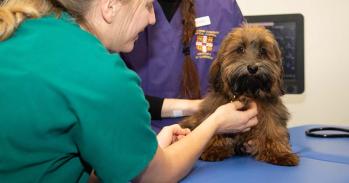
Regius Professorship in Engineering proposed to celebrate HRH The Duke of Edinburgh's 34 years as Chancellor.
Regius Professorship in Engineering proposed to celebrate HRH The Duke of Edinburgh's 34 years as Chancellor.
The University has benefited enormously from Prince Philip's three and a half decades as Chancellor. A new professorship, with the most prestigious title the country can bestow, would be a unique celebration of His Royal Highness's particular commitment to engineering as an academic discipline.
The Vice-Chancellor, Professor Sir Leszek Borysiewicz
The University has announced plans for a Regius Professorship in Engineering to celebrate HRH The Duke of Edinburgh's 34 years as Chancellor of the University of Cambridge as he steps down on 30 June this year. Regius Professorships are royal academic titles created by the monarch.
The establishment of the post will be a landmark event in the field of engineering, making an impact not only in the UK but internationally.
The Department of Engineering at Cambridge is ideally placed to realise the considerable potential of this new chair. The last Research Assessment Exercise showed that it is best general engineering department in the UK by a significant margin and, according to the QS World University Rankings Scorecard, the best in the world.
With the Department's excellent network of academic and industrial connections throughout the UK and beyond, the Regius Professor will be able to play a key role in its drive to address the world's most urgent challenges. These are extremely diverse and include energy supply, sustainability, healthcare, economic regeneration and risk management.
As well as providing a permanent commemoration of Prince Philip’s tenure as Chancellor of the University, the Professorship is intended to mark his long-standing interest in engineering and his enthusiastic promotion of the achievements of British engineering both at Cambridge and beyond.
The identity of the first Regius Professor will not be determined until 2012, when recruitment is expected to take place in Her Majesty The Queen’s Diamond Jubilee year.
Permission will now be sought from Her Majesty for the Professorship to have the title “Regius”. If granted, the position will be the eighth such post created at Cambridge and only the second approved by the present Queen.
The other Regius Professorships at Cambridge are in Divinity, Hebrew, Greek, Civil Law and Physic (all founded by Henry VIII in 1540), History (founded by George I in 1724) and Botany (founded in 2009, to mark the University’s 800th anniversary).
The Vice-Chancellor, Professor Sir Leszek Borysiewicz, said: "The University has benefited enormously from Prince Philip's three and a half decades as Chancellor. A new professorship, with the most prestigious title the country can bestow, would be a unique celebration of His Royal Highness's particular commitment to engineering as an academic discipline."
The Department of Engineering, where the Professorship will be based, is the largest Department in the University and one of the leading centres for engineering research anywhere in the world. In total, it has about 620 staff, 600 research students and more than 1,000 undergraduates.
Its research programme addresses some of the biggest challenges in science and technology and its academics are involved in a wide-ranging network of partnerships and collaborations with other researchers, companies and entrepreneurs. This means that Cambridge engineering research regularly plays a major role in providing solutions to environmental, social and economic challenges.
Prince Philip’s involvement with the subject in Cambridge dates back many decades. In 1952, he opened the Department’s Baker Building – the first in the world to be designed using plasticity theory, devised by the structural engineer and then Head of Department, John Baker. And in 2009, the Chancellor opened the latest innovative structure in Cambridge engineering – the Alan Reece Building, home to the Institute for Manufacturing.
He is also patron of the Cambridge University Engineers’ Association and, more widely, played a leading role as President of the Council of Engineering Institutions in the formation of the Fellowship of Engineering and its transition in 1992 to the Royal Academy of Engineering, of which he is the Senior Fellow.
Professor Dame Ann Dowling, Head of the Department of Engineering said: "A Regius Professorship of Engineering here would make a very clear statement about the key role than engineering plays, not only in academia, but, more importantly, in society as whole. The link to the Duke of Edinburgh's time at Cambridge is very fitting. Academics, staff and students have been encouraged and inspired through the decades by his consistent and energetic support for engineering."
This work is licensed under a Creative Commons Licence. If you use this content on your site please link back to this page.





